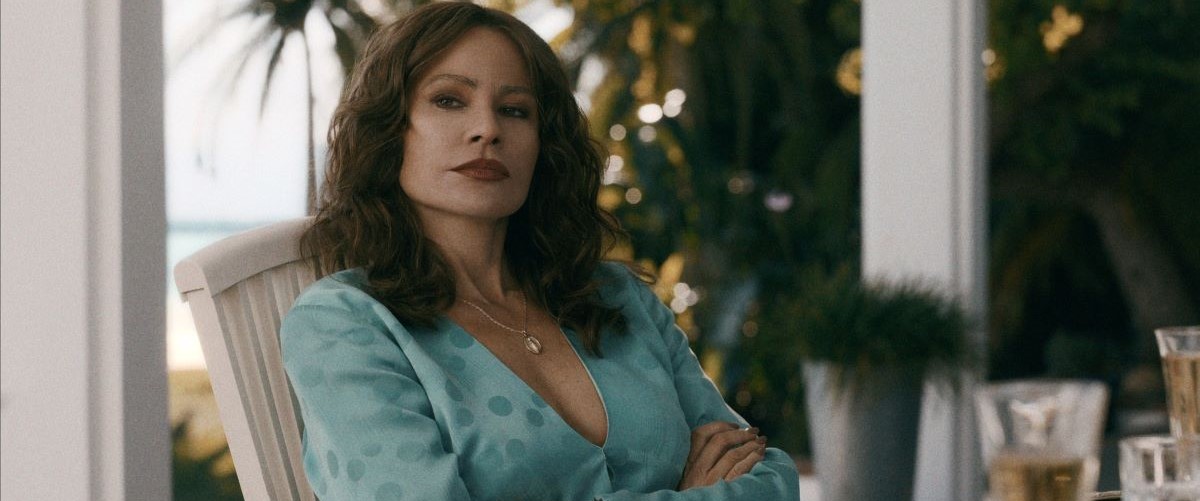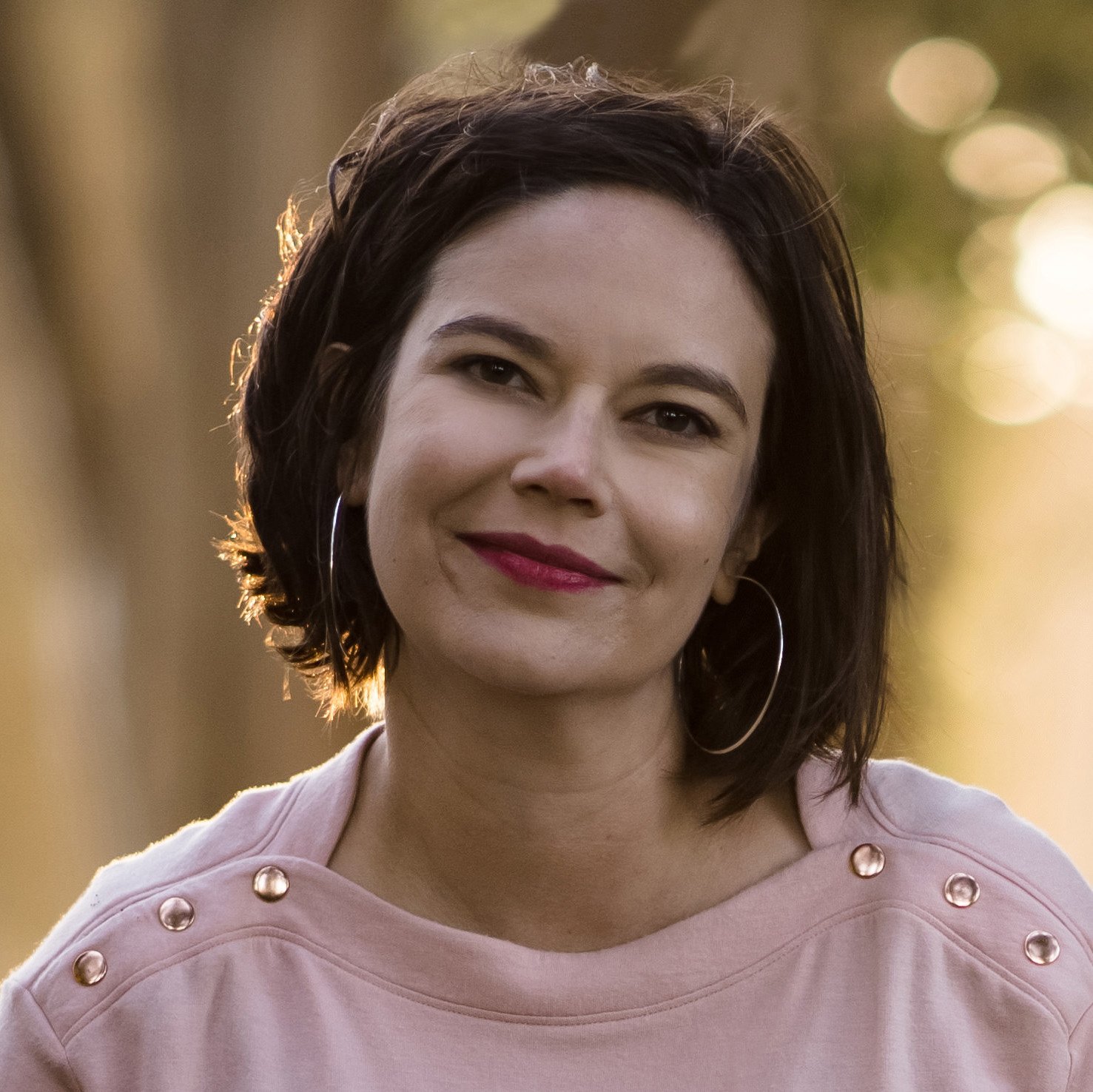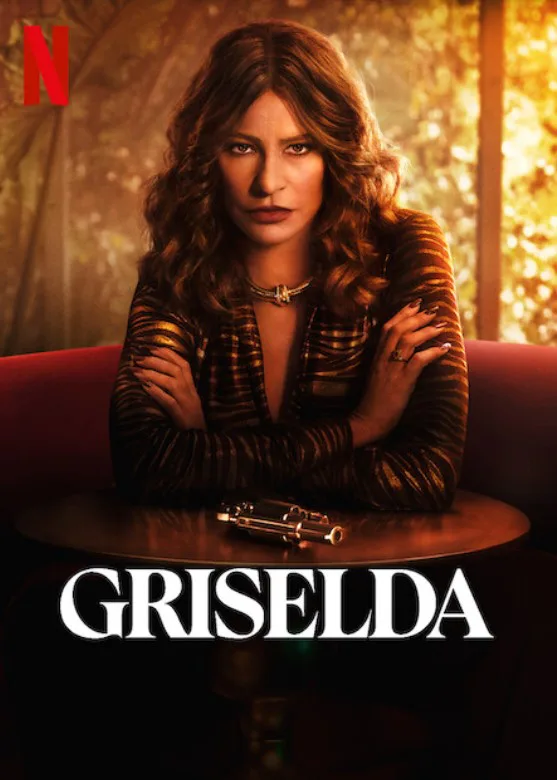“It’s f*cking up our community, our people. Not just the crime. The way they see us.”
“So you’re going to change the way they see us.”
Two Latino cops share this exchange in the third episode of Netflix’s “Griselda.” They’re lines meant to quell the reservations of viewers like me—those of us skeptical that we need another Narco story. In so many ways, these big-budget shows reinforce the narrative that Latinos and immigrants in particular are natural criminals, even though the statistics show that not to be the case.
“Griselda” tries to temper the problem by making its primary detective, here Juliana Aidén Martinez as June, a Latina cop who eventually partners up with another Latino in the force to take down Sofia Vergara’s cartel boss, Griselda. Although she may give the show its title, we Latinas can hold other roles too.
It only partly works. This is a story of a drug-dealing, murdering Colombian immigrant and that clearly adds to a negative view of our communities. It doesn’t help that while June’s world is multicultural, Griselda’s is almost entirely Latinx. She may sell to “rich white people,” but her business partners are all Colombian, Cuban, etc.
There’s even a moment when the mother (Marlene Forte) of one of her slain lieutenants comes to talk to her, and it seems like this will be the show’s opportunity to portray regular community members—those of us who are neither cops nor criminals. Instead, the pearl-wearing, grieving mom praises Griselda, declaring she’d love all her sons to work for her. Even Latinxs who appear respectable are really just criminals in conservative clothes in “Griselda.”
That’s rough.
But everyone going in will assume this focus on criminality from the beginning. This is a tale of one of the most famous Narcos of all time, up there with Pablo Escobar, whose words open the series. Sofía Vergara does well in the role. Early coverage may have declared her “unrecognizable” thanks to some prosthetics in the role, but she clearly brings her alluring star power to the role. More than once, male characters declare themselves confused, unsure if they’d rather kill or have sex with her, and some audience members may feel the same.
It’s a question the show toys with as Vergara inhabits the character through her traditional crime-boss journey. “Griselda” largely sticks to the beats you’d expect, following its protagonist through a series of snowballing decisions into a life of crime and cruelty. Her eventual fate of being consumed by paranoia and isolation is always waiting—these stories must end in tragedy to upload our social order after all.
But “Griselda” also doesn’t ignore that people do drugs for fun. The bacchanal scenes are delightful even as Griselda’s early capacity for violence foreshadows that eventually, these parties will go south, as one does in spectacular fashion in episode five.
By that time, though, I was tired of visiting Griselda’s world. Yes, her men, particularly Alberto Guerra as Dario and Martín Rodríguez as Rivi, are alluring and her children (played by Martín Fajardo, Jose Velazquez, and Orlando Pineda) start as innocent as any others. But hers is a story of greed and cruelty unbridled and so spending six hours there feels like a lot. There’s a reason “Scarface” is a movie and not a show.
Ostensibly, “Griselda” adds to the cartel canon not via its format or plot points, but rather the gender of its lead. Indeed, the show emphasizes repeatedly how unusual Griselda is because she’s a woman. Her gender is the first clue the cops get about her identity and the character herself names it more than once. Historically, Griselda Blanco’s feminity was noteworthy; although women being cartel bosses hardly seems feminist. Just recently in the pop culture sphere, we’ve had “Queen of the South” with not one but two women cartel leaders in Alice Braga’s titular Teresa Mendoza and Veronica Falcón’s fantastic Camila Vargas. With five seasons of that popular series, not to mention its Spanish-language predecessor, “Griselda” needs to do more than feature a female Narco to be new.
In the end, Griselda is no different from her male counterparts. Her nickname may be “La Madrina,” but she is not more nurturing or giving than others. She even engages in domestic violence, despite it clearly not being in her children’s best interest (although she repeatedly tells them that everything she does, she does for them). And because she is no different, it’s unclear why “Griselda” needs to exist. Yes, it gives Sofía Vergara and many of its other Latinx cast members meaty roles, but if Vergara, who also executive produces the show, wanted to shed the Latina stereotypes that plagued her “Modern Family” character, picking another cliché was not the way to go.
Those who enjoyed “Narcos” and “Sons of Anarchy” will find plenty here to entertain them on the surface, but in terms of larger social commentary or insights on the state of Latinidad, it’s an empty vessel. Ultimately, “Griselda” is a high that leaves you a little worse for wear.
Whole series screened for review. Launches on Netflix on January 25th.




















